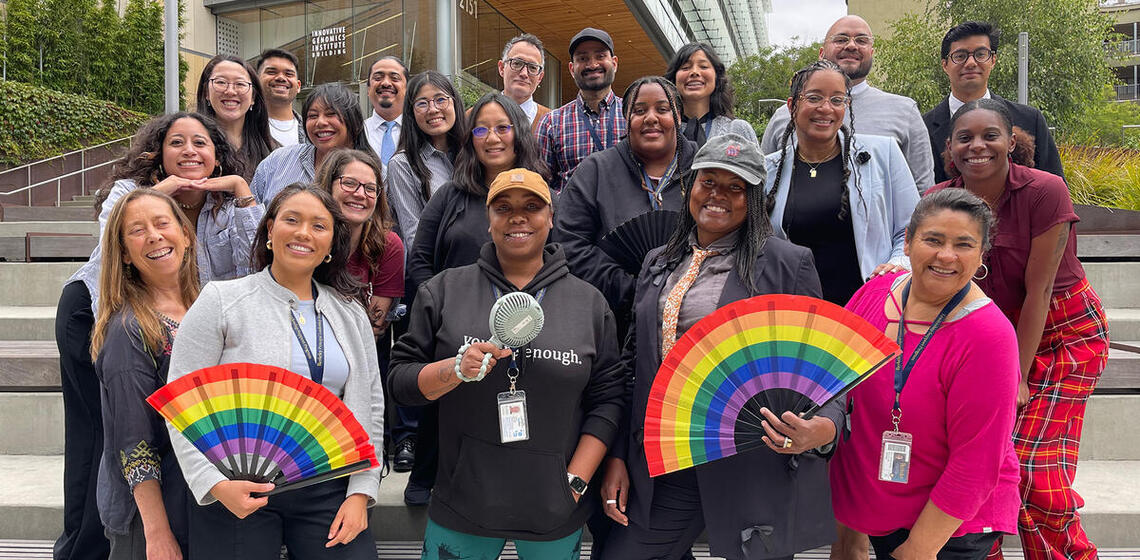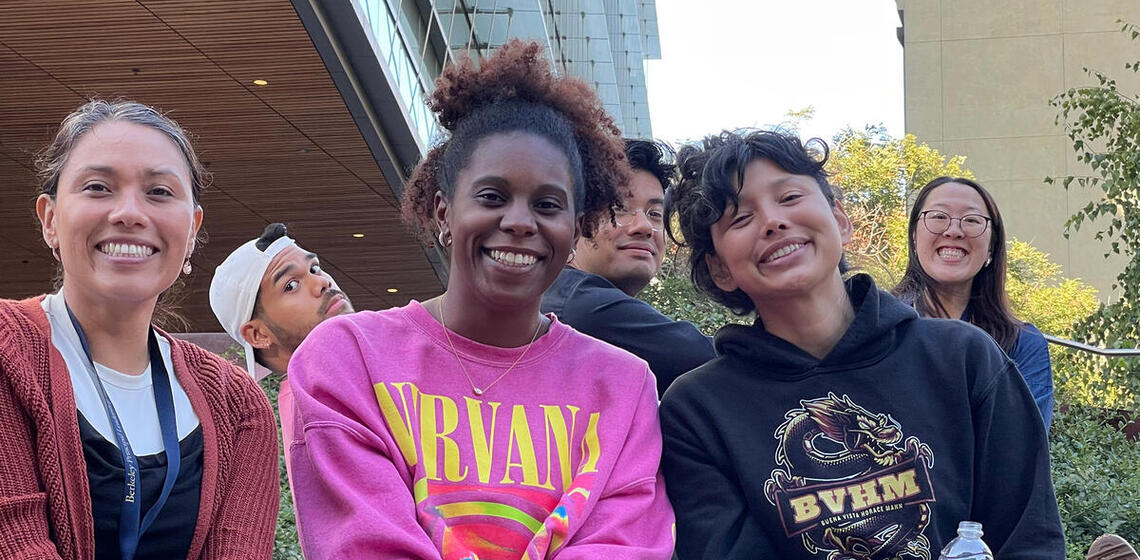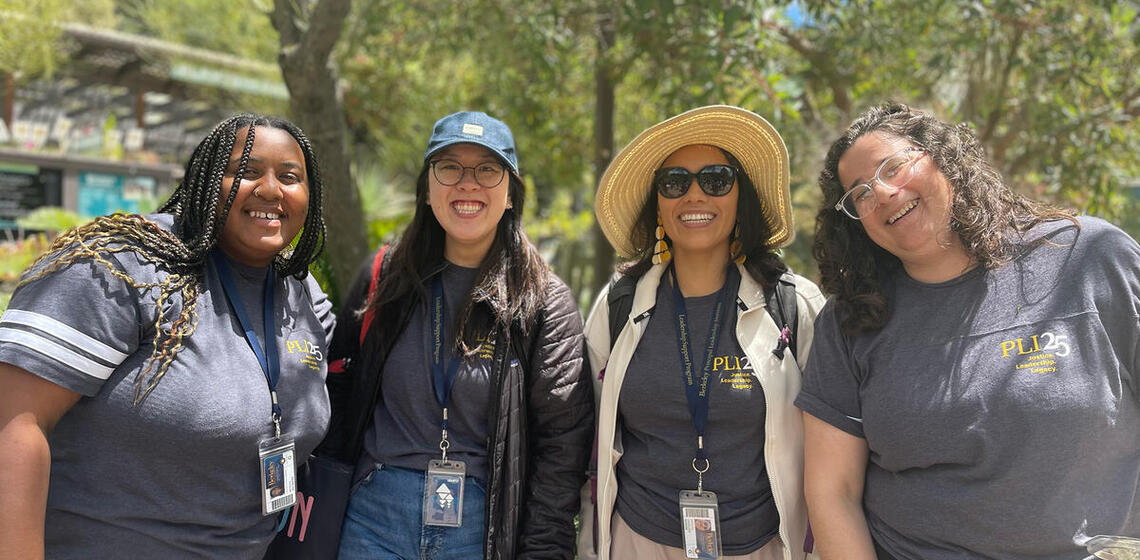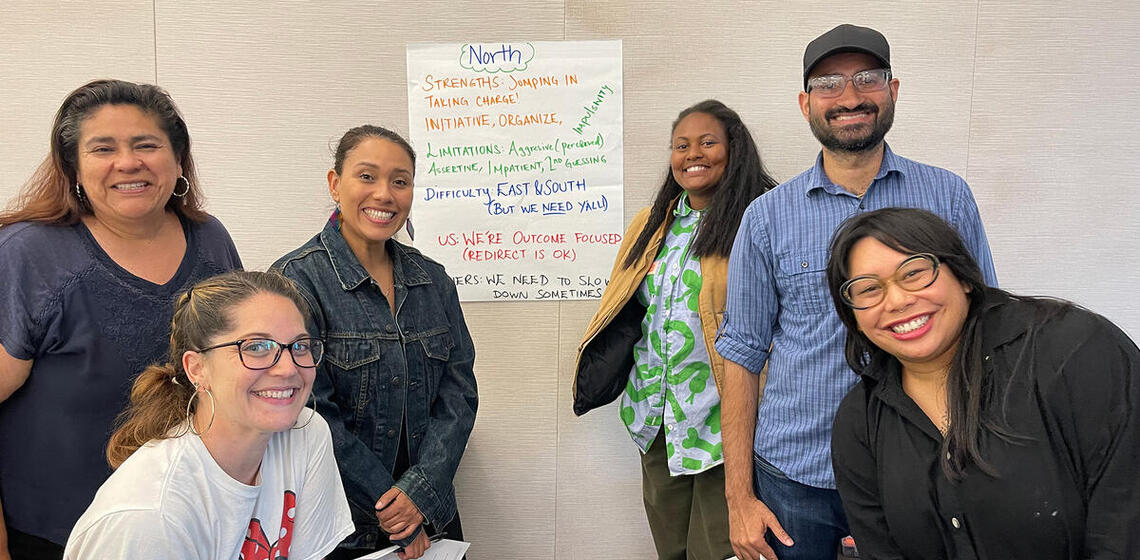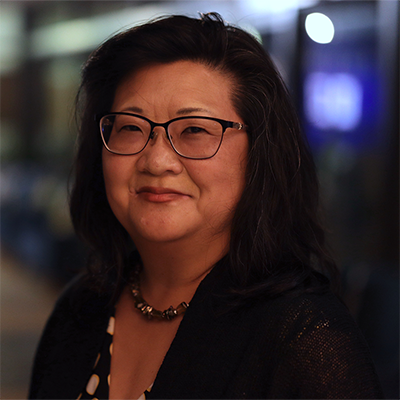At the Principal Leadership Institute (PLI), we know that the influence of the school principal on student achievement is second only to that of teachers. And with the growing demands and difficult working conditions, the pool of principals prepared to face these challenges has diminished, particularly in underperforming schools.
Since its founding in 2000, PLI has been the premiere program that consistently provides rigorous and effective preparation for school leaders in the San Francisco Bay Area and beyond.
We take real-world challenges and use research to inform practice, enabling school leaders to identify assets in their communities in order to make high-quality learning accessible to all students.
Focus of Study
Our focus on equity, social justice, and the formation of leadership identity and relationships develops administrators into instructional leaders who are skilled in working collegially with teachers, parents, students, and the community to improve the quality of teaching and learning. PLI students develop strong visions of equitable schooling. They also understand the change and school reform process, capable of analyzing challenges and creating solutions.
Program Structure
The PLI relies on strong relationships with Bay Area school districts and maintains active communication with districts to facilitate field experiences, receive feedback on the program, and ensure a strong link between university coursework and urban school reality.
Students enroll continuously in order to remain with their entering cohort.
The program lasts approximately 14 months. In the first seven-week summer session, classes meet four days a week. In Fall and Spring, classes meet nights and weekends. The final summer classes meet three afternoons a week for five weeks. The intensive program schedule is designed to provide rigorous content and multiple experiences in order to assure solid preparation for the role of administrator.
The PLI includes conventional coursework and a structured practicum in the student’s current school and/or district. Most classes employ a problem-based pedagogical model in which graduate students complete group and individual tasks designed to reflect the "real" life of their work in schools. All courses emphasize a theory to practice connection, and courses are taught by instructors from the university and from practice.
Often, persons from practice are invited to make presentations and/or provide feedback to candidates when they present. All students have a university field supervisor while participating in the program, chosen from our excellent staff of former school principals.
Starting in 2019, the California Commission on Teacher Credentialing (CTC) requires that all administrative credential candidates obtain a passing score on the California Administrator Performance Assessment (CalAPA) in addition to successfully completing coursework in order to be recommended for the Preliminary Administrative Services Credential (PASC). Candidates who are unable to complete the CalAPA requirement due to COVID-related school closures have the option to satisfy this requirement during induction.
For more information about the Cal APA, please visit the CTC Performance Assessment Website
Entrance Requirements
PLI applicants must demonstrate a commitment to improving outcomes for vulnerable and historically underserved student populations in urban schools. Substantial experience working as a teacher or in a pupil personnel services position (e.g., school counselor, school psychologist, social worker, etc.) is essential. Additionally, experience engaging in school or district level leadership (even informal leadership) particularly around supporting the learning of other adults is an important requirement.
Type of Program (M.A./Ph.D.)
Students completing the program receive a Master’s degree in Educational Administration and a recommendation toward an Administrative Services Credential - Preliminary (Tier I) from the California Commission on Teacher Credentialing (CCTC). The Preliminary Administrative Services Credential (PASC) authorizes service as a superintendent, associate superintendent, deputy superintendent, principal, assistant principal, dean, supervisor, consultant, coordinator, or in an equivalent or intermediate-level administrative position.
Graduates
PLI graduates have a high rate of placement and are known to be retained in school leadership positions over time. A majority of PLI graduates hold school or district administrator positions, and some work in teacher lead roles such as out of classroom coaches. For more information about PLI's alumni graduates, see the PLI Overview.

